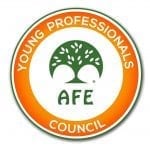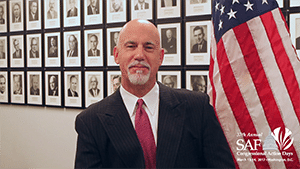
Camille Dollhoff of Artistic Blossoms Floral Design Studio in Boston advocates for strategic fixes to the Affordable Care Act through the STARS act, during SAF’s Congressional Action Days, held in March in Washington, D.C.
As the presidential field narrows, the Society of American Florists continues to build support for the STARS Act in Congress.
Along with members of the seasonal industries coalition, SAF has had more than 100 meetings in this Congress urging support for STARS, or the “Simplifying Technical Aspects Regarding Seasonality (STARS) Act.” The meetings have included members of the House Ways & Means and Senate Finance Committees, which have to approve the legislation prior to floor consideration.
That work is paying off, said Shawn McBurney, SAF’s senior director of government relations, who noted that the legislation has gained 76 co-sponsors in the House.
“That’s almost double the number from the last Congress, when the bill had a total of 43,” he said. “The Senate bill was introduced with bipartisan co-sponsors early in this Congress compared to the last Congress when it was introduced very late with no cosponsors.”
The STARS Act would assist employers in the floral industry and others who hire seasonal workers. Under the Affordable Care Act (ACA), there are two different definitions of what constitutes a seasonal person on staff. The STARS Act would align definitions of what constitutes a seasonal employee based on Treasury Department regulations and provide clarity so employers can understand and comply with the law. Fixing the law has been a priority for SAF members during the association’s annual Congressional Action Days.
“Left unchanged, the law will continue to create confusion among seasonal employers attempting to properly comply with the ACA,” McBurney said. “In many cases, seasonal employers may believe they are in full compliance until they are audited and subsequently receive significant fines and penalties.”
In the wake of CAD in March, several more co-sponsors were added to the House bill, proving that direct input from constituents can make a real difference to lawmakers, McBurney said. Still, the struggle continues, particularly in a highly charged political season.
“As the November elections approach, political tensions will increase, and passing any legislation will become much more difficult,” he explained. “In congressional meetings, SAF stresses that the STARS Act is a non-controversial, bipartisan effort to make a small technical correction to the ACA so that small businesses can understand and comply with it.”
Recently, SAF discussed the STARS Act with House Ways & Committee Chairman Kevin Brady (R-Texas), emphasizing that it was a bipartisan technical corrections bill supported by both Republicans and Democrats.
“Brady said there were very few bills meeting that criteria and that he is seeking exactly that kind of legislation for his committee to consider,” McBurney said.
SAF will continue to build support for the STARS Act, highlighting not only its bipartisan support but also the critical need for it.





